Trump’s artless deals on the world stage

As a candidate, Donald Trump advocated an “America First” foreign policy to rebalance what he saw as an unfair international order, promising that “I alone can fix it.” In a recent, extraordinary burst of diplomacy, President Trump has put that premise to the test on the world stage, tearing up the Iran nuclear accord, launching multiple trade wars, publicly admonishing NATO and Western allies, and holding chummy one-on-one summits with the autocratic leaders of North Korea and Russia. The upshot has been a string of gaffes and retractions that put his top aides on continuous cleanup duty, prompting congressional Republicans this week to stage an intervention. After meeting at the White House with the Republican leaders of the House and Senate, Trump even walked back his proposed fall summit with Vladimir Putin, and suspended his trade war with the European Union.
“You come before a group of senators today who are filled with serious doubts about this White House and its conduct with American foreign policy,” Republican Sen. Bob Corker, the chairman of the Senate Foreign Relations Committee, told Secretary of State Mike Pompeo during a remarkably testy hearing on Wednesday. “The administration tells us, ‘Don’t worry, be patient, there is a strategy here.’ But from where we sit, it appears that in a ‘ready, fire, aim’ fashion, the White House is waking up every morning and making it up as they go.”
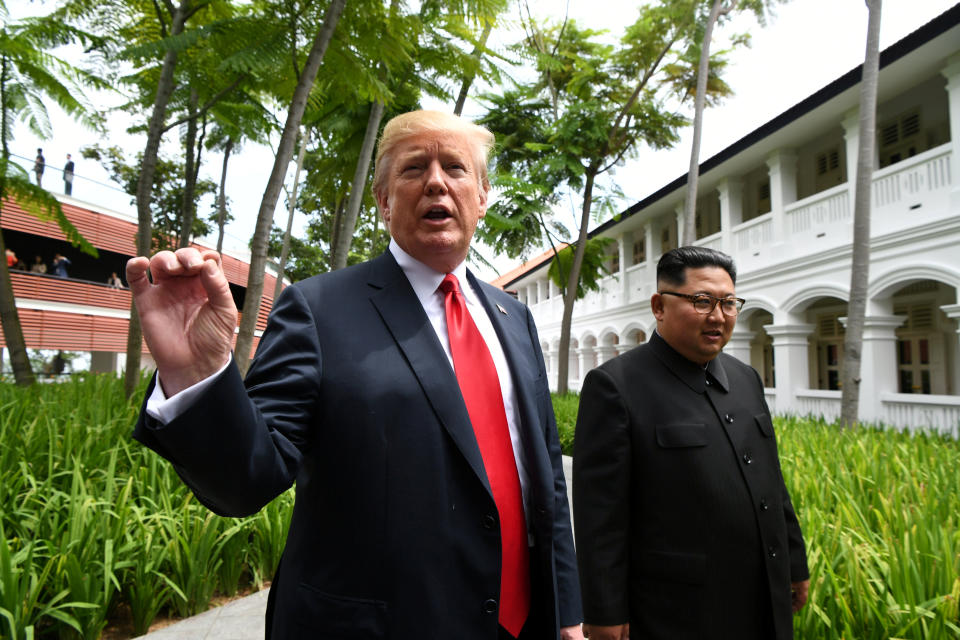
If Trump lacks a grand strategy, he does repeatedly display the tactics and instincts honed from his experience as a businessman, or more precisely a salesman: You close the deal at hand by whatever means necessary, oversell it by what he calls “truthful hyperbole” (“There is no longer a Nuclear Threat from North Korea” Trump tweeted after his Singapore summit) and go on to the next deal.
Supremely confident in his own deal-making instincts, Trump was dismissive of both diplomatic protocol and the nuance and detail of policy formulation necessary to strike complex geopolitical treaties. He instinctively dislikes multilateral institutions and voluminous agreements, preferring vague bilateral deals that can be sealed with a handshake and quickly claimed as victories. A tendency has also emerged of disparaging or threatening rivals, followed by a conciliatory gesture and offer to negotiate on what he perceives as more favorable territory.
The spotty results and diplomatic blowback from such a bellicose and transactional approach were evident when Trump returned home to a firestorm of bipartisan criticism. In a single week overseas, he publicly upbraided close NATO allies in Brussels, shattered diplomatic protocol by criticizing his host, British Prime Minister Theresa May, and, in an obsequious performance in Helsinki, gave Russian President Vladimir Putin’s denials of election interference equal weight to the conclusion of his own intelligence agencies. Even Republicans were taken aback by his behavior.
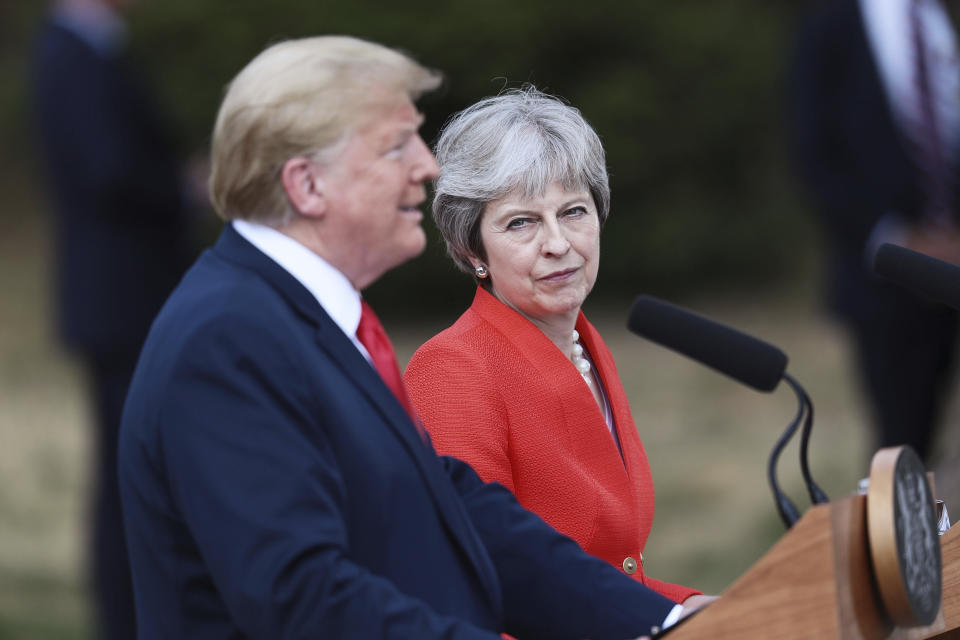
“A lot of us are willing to cut President Trump a huge amount of slack for his unorthodox style because he’s a businessman, and in business there’s wisdom in keeping your opponents off balance, and to close a deal sometimes you have to go mano a mano,” said Danielle Pletka, senior vice president for foreign and defense policy studies at the American Enterprise Institute, a conservative think tank in Washington. “But there is a huge downside to Trump’s irresponsible rhetoric and foolish tweets that too often make him sound like a classic tin pot dictator. The American people are used to taking their leaders seriously, and U.S. presidents are expected to be professional, and have respect for the office and the people they invest with responsibility. After all, this isn’t some cheesy apartment building Trump is negotiating. It’s the future of the world.”
Trump’s recent handling of the Iran nuclear accord offers a case in point in his “Art of the Deal” tactics. Much to the dismay of close European allies, Trump tore up the Iran nuclear accord last May without an obvious replacement, and then in a familiar pattern, took to Twitter this past week to issue an all-caps threat of military destruction.

In a speech two days later, Trump invited Iran back to the negotiating table to reach a “real deal.”
Wendy Sherman is the former Under Secretary of State for Political Affairs, who led the negotiations that produced the Iran nuclear accord. “President Trump’s diplomatic style is to thump adversaries over the head with threats, and then after beating them up offer to sit down to talk and try and seal a deal. What he doesn’t understand is that Iran has a culture of resistance that equates giving in to those kinds of public threats as surrender, and they won’t surrender,” Sherman told Yahoo News in an interview. The greater shortcoming of the Trump approach, she says, is that it lacks the detailed policy preparation and follow-through necessary to turn verbal agreements into binding international accords. “Trump likes to make headlines with his tweets, and he favors the pomp and circumstance of summits, but with both Iran and North Korea, there is no sign that he has put in the advance work, or that his team has shown the persistence and precision that these complex deals demand. Trump just reverts to the same transactional approach he used in real estate, which led him into multiple bankruptcies. I worry that he will be similarly taken in on some of these geopolitical deals, and that is extremely dangerous.”
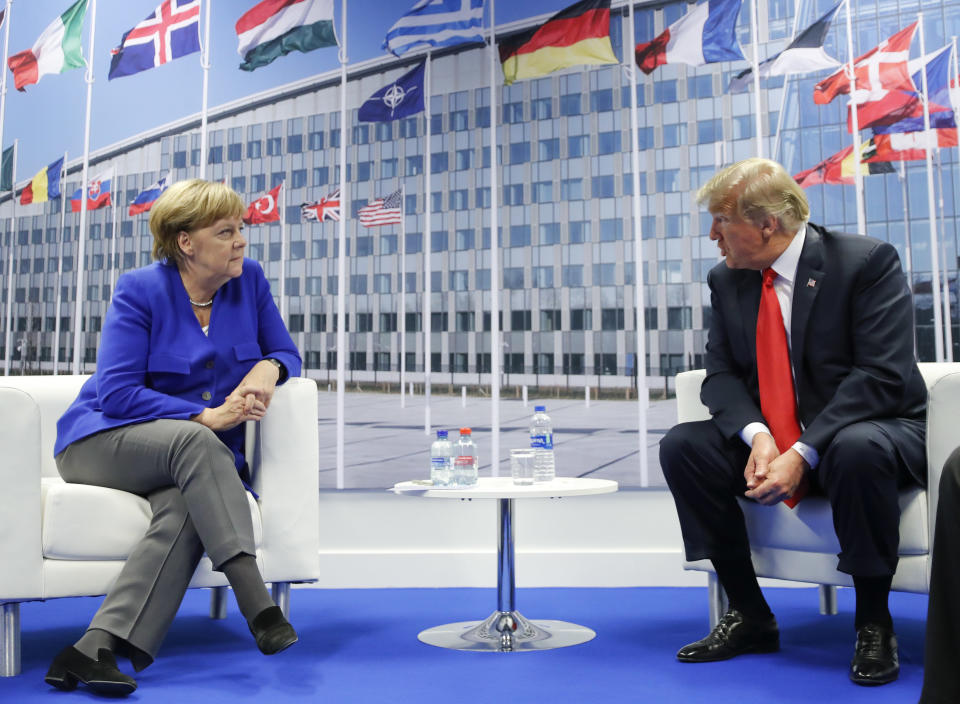
Even when he has a valid point — such as the failure of other NATO members to shoulder their share of defense expenditures — he makes it in the most disruptive way possible. His criticism over the past year prompted many allies to increase defense spending significantly. Instead of claiming victory and joining in a show of unity at the recent NATO summit, however, Trump publicly excoriated close ally Germany, threw the summit into chaos by forcing an emergency meeting on burden sharing, and then moved the goalposts at the last minute by stating that allies should double their defense spending targets from 2 percent to 4 percent of GDP. Predictably, the performance left bruised feelings and bitter recriminations in its wake.
“President Trump always needs to be the star of the show, so what you saw at the NATO summit was him literally manufacture a crisis . . . then swoop in as the hero, claiming to have ‘fixed’ a problem no one else could. When in reality, absolutely nothing changed at the summit in terms of actual facts,” Michele Flournoy, a former Under Secretary of Defense for Policy, told Yahoo News. “So he remains very much a transactional dealmaker, and trying to apply the approach he developed in real estate to international relations continues to produce disastrous results.”
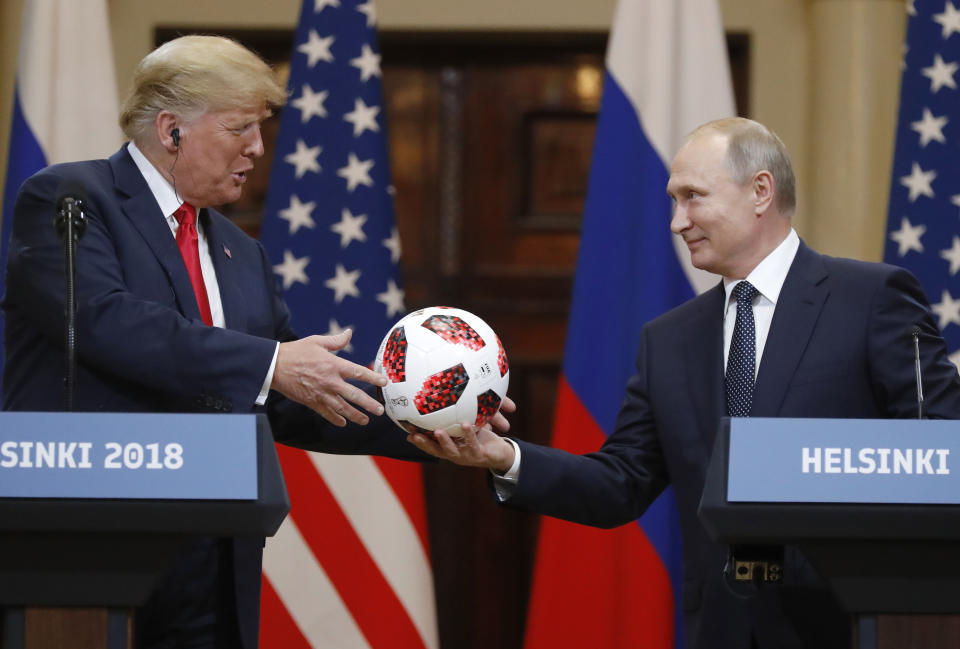
Trump’s belief that he alone can fix stubborn geopolitical problems is also evident in his preference for one-on-one meetings with strongmen like North Korean leader Kim Jong Un and Russian President Vladimir Putin, without top aides or note takers in attendance. After Trump’s meeting with Kim, he surprised South Korean allies and his own Pentagon by announcing a freeze of “provocative” joint U.S.-South Korean military exercises, and on his way home prematurely claimed that North Korea no longer represents a nuclear threat. This week Secretary Pompeo conceded that Pyongyang continues to produce fuel for nuclear weapons.
After Trump’s private meeting with Putin, his top aides were left in the dark about exactly what was discussed about nuclear arms, possible U.S.-Russian military cooperation in Syria, and U.S. sanctions. In a post-summit interview, Trump even suggested that the United States would be reluctant to come to the defense of new NATO ally Montenegro, whose aggression against Russia could start “World War III.”
Aaron David Miller is a former adviser to six secretaries of State, and currently vice president at the Woodrow Wilson International Center for Scholars in Washington. “Even if you believe there is an unconventional logic to how President Trump conducts diplomacy, my concern is that it doesn’t comport with the geopolitical laws of gravity that determine how things work, and what actually gets done,” he said in an interview. “In fact, the evidence continues to mount that he is the first American president in our history who is unable define U.S. national interests untethered from his own personal interests, vulnerabilities, fears, and likes and dislikes.”
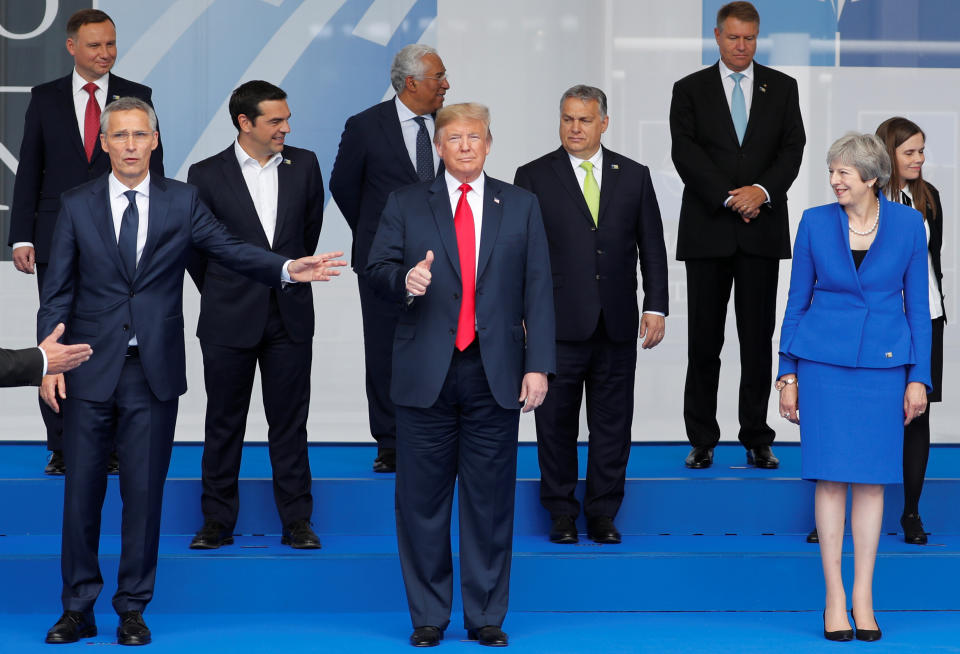
_____
Read more from Yahoo News:


